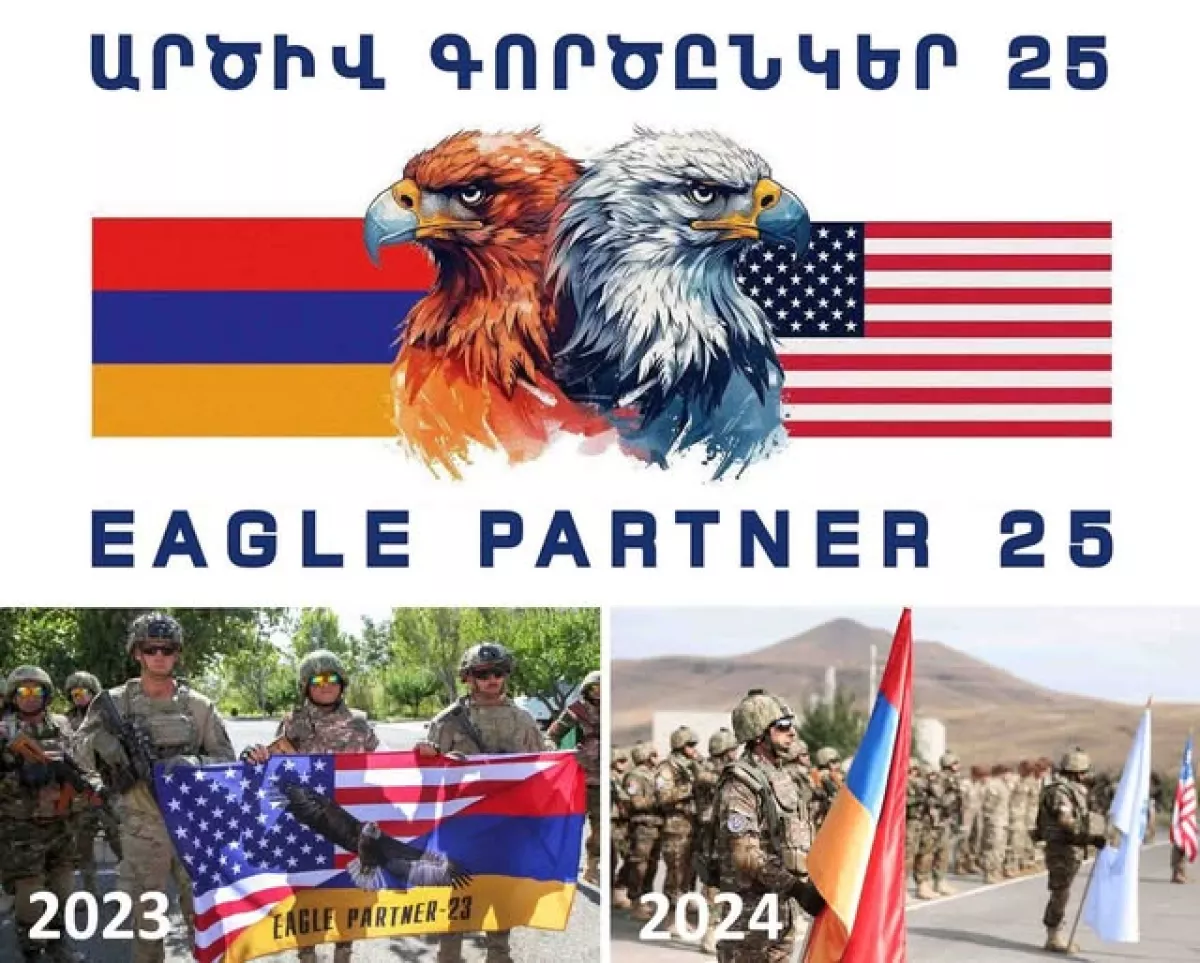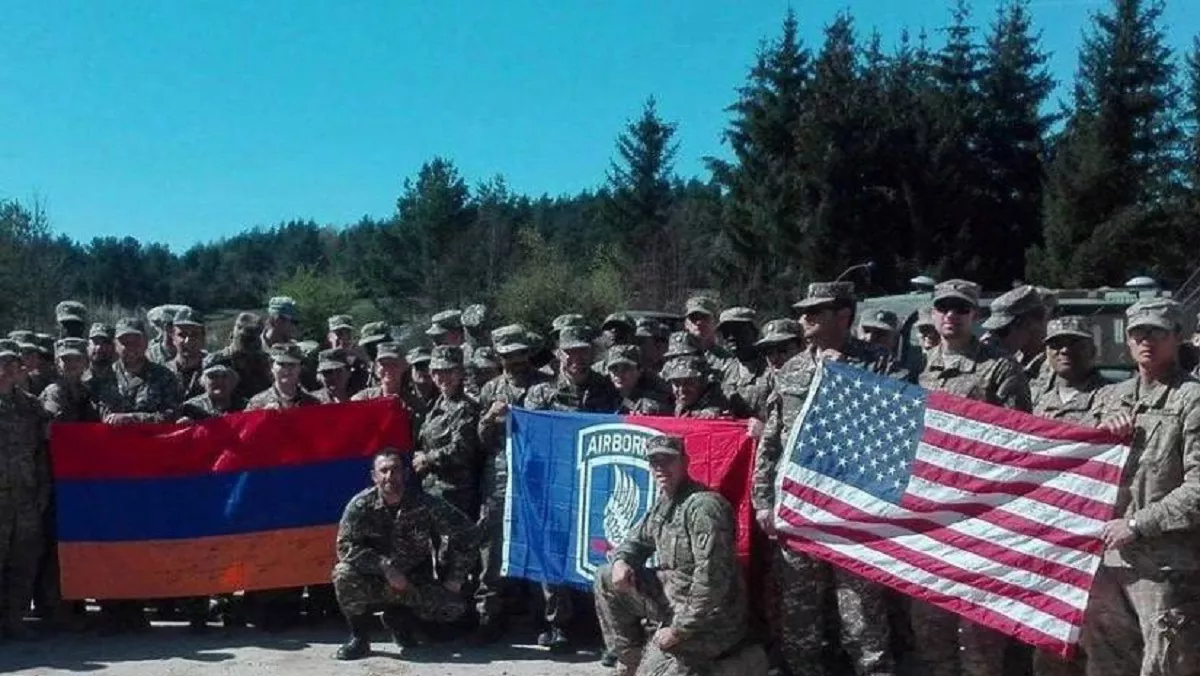Eagle Partner 2025: US-Armenia drills challenge the Kremlin Pashinyan pulls the nation away from Russia
From August 12 to 20, Armenia will host the Armenian-American joint military exercises Eagle Partner 2025, involving servicemen from the Armenian Peacekeeping Brigade, the U.S. Army forces in Europe and Africa, and the National Guard of the state of Kansas. The formal goal of the exercises is to enhance the level of cooperation among the unit participating in international peacekeeping missions within peace operations, to exchange advanced management experience and tactical communication, and to improve the readiness of the Armenian Armed Forces peacekeeping unit.
It is worth noting that similar exercises were held in the country in September 2023 and July 2024. After Armenia and the United States signed a strategic partnership charter in January 2025, then U.S. Secretary of State Antony Blinken stated that the Eagle Partner initiative would continue in the direction of strengthening peace and protecting Armenia’s borders. “This [the charter] marks a significant milestone in the relationship between the United States and Armenia. We’re establishing our U.S.-Armenia Strategic Partnership Commission. This commission gives us a framework to expand our bilateral cooperation in a number of key areas: economic matters, security and defence, democracy,” Blinken said at the time.
Naturally, the holding of Armenian-American military exercises causes serious displeasure on the part of Russia. As early as September 2023, ahead of the Armenian-American exercises, Russia’s Deputy Foreign Minister Sergey Ryabkov launched harsh criticism of Armenia, reminding it of its direct obligations within the Collective Security Treaty Organisation (CSTO).
“If Armenia is a member of the CSTO, then it should conduct exercises with its allies. We proceed from the assumption that in the spirit of alliance, the practice should be to conduct exercises with those who are part of this alliance,” the diplomat stated at the time, emphasising that Moscow is concerned about the Armenian-American military exercises.

The Kremlin also stated then that the conduct of military exercises between Armenia and the U.S. does not contribute to “strengthening the atmosphere of mutual trust in the region.”
“Russia will closely analyse and monitor the situation regarding the Armenian-American exercises,” warned the Press Secretary of the Russian President, Dmitry Peskov, noting that this fact causes caution in Moscow.
A similarly harsh reaction from Russia followed ahead of Eagle Partner 2024. The official representative of the Russian Foreign Ministry, Maria Zakharova, said at a briefing that military exercises involving Western armed forces undermine the mechanisms of Armenia’s security cooperation with Russia.
“No matter what peaceful peacekeeping goals the Westerners declare, the main objective is obviously to create a foothold for implementing their own geopolitical projects,” she stated at the time, noting that the West “by involving the republic in maneuvers and training programs under its aegis, imposes NATO standards on its armed forces,” which leads to the West gaining additional leverage over Armenia’s internal and external policies.
In other words, in both cases the Russian side made it clear to Yerevan that Moscow is not pleased with Armenia becoming a sort of Western foothold for strengthening its position in the region.
However, what stands out now is the unusual silence from the Kremlin — Moscow is not rushing to comment on the upcoming Armenian-American exercises, although it is unlikely that this fact will escape the attention of the Russian authorities.
On the other hand, considering Yerevan’s constant orientation towards the West, holding military exercises with the U.S. on Armenian soil indicates that the Eurasian orientation is not a priority in Armenian foreign policy. At the same time, this fact should be seen as a demonstrative challenge to Russia and a kind of signal that on security issues Yerevan looks to the U.S., not Russia. And, of course, the Armenian side presumably expects to gain political, financial, and economic bonuses from its Western, so to speak, partners.

By continuing to ignore similar events held under Moscow’s patronage, official Yerevan is moving clearly closer to the West, thereby contributing to the weakening of Russia’s positions both within the republic itself and in the region. This leads to the conclusion that Armenia, despite pursuing a dual policy of “both with you and with us,” intends to break free from under the Kremlin’s umbrella in the medium or long term, depending on the geopolitical situation in the world and regional developments.
Russia is fully aware of this and, accordingly, will “fight” for Armenia until the very end. It is already clear to Moscow that the policy of “soft” pressure on Yerevan is insufficiently effective. Therefore, it cannot be ruled out that before the parliamentary elections in Yerevan in June 2026, Moscow may resort to more radical methods of influence, including attempts to change the government in Armenia. Previous attempts, such as the recent organisation of a coup d’état, were unsuccessful. However, given Moscow’s persistent determination to keep Yerevan within its sphere of influence at all costs, it is likely that the “Russian trace” will once again manifest itself in the domestic political agenda of Armenia.








